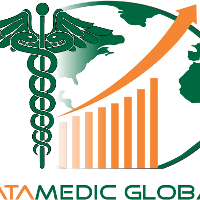Affected Providers
ESRD facilities billing Medicare Administrative Contractors (MACs) for services they provide to Medicare patients.
Action Needed
Make sure your billings staff knows about changes, effective October 1, 2023:
• Billing J0889 for daprodustat
• New ICD-10-CM codes for: o Comorbidity payment adjustment o Acute kidney injury
Background
Transitional Drug Add-on Payment Adjustment (TDAPA) for J0889
The TDAPA is a payment adjustment under the ESRD PPS for certain new renal dialysis drugs and biological products. The TDAPA helps ESRD facilities:
• Add new drugs and biological products and make appropriate changes in their businesses to adopt such products
• Get additional payments for such associated costs
• Promote competition among the products within the ESRD PPS functional categories
• Focus Medicare resources on products that are innovative
Effective October 1, 2023, daprodustat (an oral hypoxia-inducible factor prolyl hydroxylase (HIF PH) inhibitor that stimulates erythropoietin production and is indicated to treat anemia in adults with chronic kidney disease who've been on dialysis for 4 months) qualifies for the TDAPA. It qualifies as a drug or biological product used to treat or manage a condition for which there's an existing ESRD PPS functional category, specifically, the anemia management category. ESRD facilities should report the AX modifier (item furnished in conjunction with dialysis services) with the HCPCS code J0889 (daprodustat, oral, 1 mg, (for ESRD on dialysis)) to get payment for the TDAPA-eligible drug. While this drug is eligible for the TDAPA, it doesn't qualify toward outlier calculation. ESRD facilities should only use the AX modifier for a drug or biological product that qualifies for payment using the TDAPA.
ESRD facilities won't get separate payment for J0889 with or without the AY modifier, and we'll process the line item as covered with no separate payment under the ESRD PPS.
There are new ICD-10-CM diagnosis codes eligible under the hereditary hemolytic and sickle cell anemia comorbidity category. These ICD-10-CM codes are eligible for a comorbidity payment adjustment, effective October 1, 2023. In the chronic comorbidity condition under the hereditary hemolytic and sickle cell anemia category, we've added 6 new ICD-10-CM codes and descriptors are:
• D57.04: Hb-SS disease with dactylitis
• D57.214: Sickle-cell/Hb-C disease with dactylitis
• D57.414: Sickle-cell thalassemia, unspecified, with dactylitis
• D57.434: Sickle-cell thalassemia beta zero with dactylitis
• D57.454: Sickle-cell thalassemia beta plus with dactylitis
• D57.814: Other sickle-cell disorders with dactylitis
We've also added 3 ICD-10-CM diagnosis codes to the gastrointestinal bleeding comorbidity category. These ICD-10-CM codes are eligible for a comorbidity payment adjustment and were effective October 1, 2020. The codes and descriptors are:
• K20.81: Other esophagitis with bleeding
• K20.91: Esophagitis, unspecified with bleeding
• K21.01: Gastro-esophageal reflux disease with esophagitis, with bleeding
CMS are not adding or changing any comorbidity categories. See the updated comorbidity payment adjustment list.
Acute Kidney Injury (AKI) Coding Update
For payment under Medicare, ESRD facilities must report all items and services provided to patients with AKI by submitting the 72x type of bill with condition code 84 - Dialysis for AKI on a monthly basis. Condition code 84 differentiates an ESRD PPS claim from an AKI claim. AKI claims require 1 of a specific list of diagnosis codes for payment at the link below.
Effective for dates of service on and after October 1, 2023, we added 2 ICD-10-CM diagnosis codes to the list of AKI diagnosis codes. These codes and their descriptors are:
• O08.4: Renal failure following ectopic and molar pregnancy
• O90.49: Other postpartum acute kidney failure
Credit: CMS.gov

